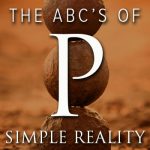
Advice for good parenting in P-B could sound something like this: “To put the child before self requires discipline and patience and generosity, and if one believes these attributes are a natural outgrowth of love, one misunderstands love. Feelings for one’s own child are vast. In their immensity, a parent can mistake recklessness for generosity, irresponsibility for freedom. Establishing boundaries, providing structure, is love and work. What we say, what we do, our children watch us, and from us they learn.”[i]
Tina Griego’s advice is good and relatively true; relative in the sense that our children enter into the context of P-B and the identity determined for them by that paradigm dooms them to a life of dissatisfaction and suffering. Most of us are not “demonstrating” how to create a new narrative and the True-self identity that would result from that paradigm shift.
The poet Kahlil Gibran helps us understand the relationship of parents to their children from the perspective of P-A.
Your children are not your children,
They are the sons and daughters of Life’s longing for itself.
They come through you but not from you,
And though they are with you yet they belong not to you.
You may give them your love but not your thoughts,
For they have their own thoughts.
You may house their bodies but not their souls,
For their souls dwell in the house of tomorrow,
Which you cannot visit,
Not even in your dreams.
— Kahlil Gibran [ii]
[i] Griego, Tina. “A better image of parenthood.” The Denver Post. October 20, 2009, p. 3B.
[ii] Gibran, Kahlil. The Prophet. New York: Knopf, 1923, p. 17.


